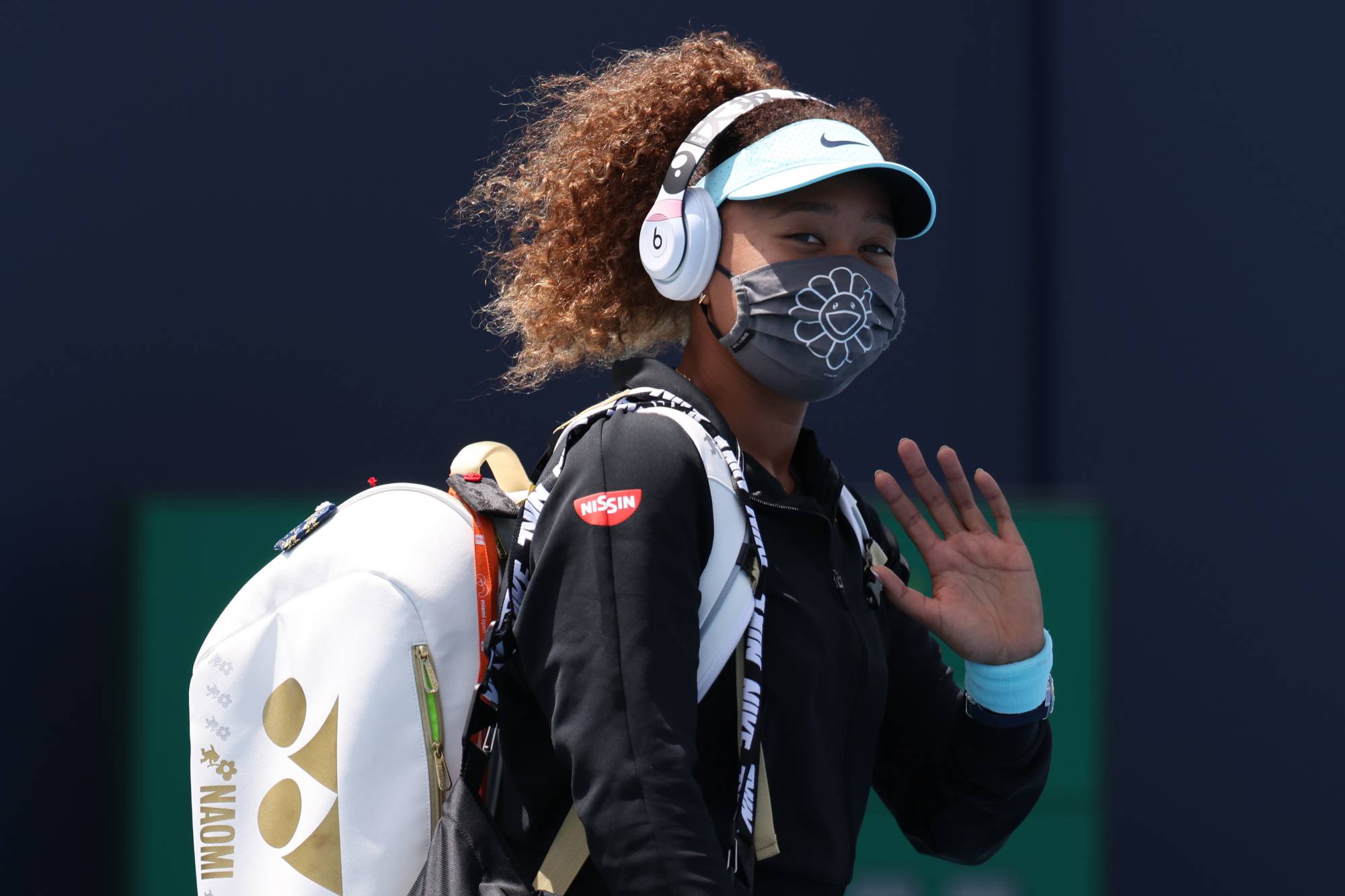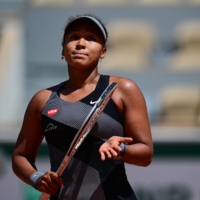Naomi Osaka, arguably the best female tennis player in the world, withdrew from the French Open on Monday after a dispute over her boycotting news conferences led to the 23-year-old star being forced to choose between her mental well-being and her responsibilities as one of the most visible figures in the sport.
In her wake, she leaves questions about mental health, the humanity of athletes and the media’s role in all of it.
She also indirectly caused the amazingly ironic scene of French Open President Gilles Moretton responding to her withdrawal during a news conference Tuesday in which he did not take any questions.
In trying to shield herself from outside pressure and stress, Osaka instead became the central figure of the French Open when she announced she wouldn’t take part in any news conferences in order to protect her mental health. She followed through on Monday after her first-round win over Patricia Maria Tig, and drew a $15,000 fine.
The heads of the four Grand Slam events — the Australian Open, the French, Wimbledon and the U.S. Open — then drew a line in the sand with a statement Monday that threatened further fines and even disqualification from the French Open and other Grand Slam events if Osaka did not comply.
With no sign of a compromise in sight, Osaka chose to withdraw. She announced her decision Monday in a statement in which she said she never intended to become a distraction. She also disclosed more on her mental health challenges.
“The truth is that I have suffered long bouts of depression since the U.S. Open in 2018 and I have a really hard time coping with that,” she wrote.
Just like that, the four-time Grand Slam winner and one of tennis’ most illuminating figures walked off the red clay and out of the tournament. Osaka said she would “take some time away from the court now,” and gave no indication about when she would return.
Mental health is something the sports world should take seriously. Too often athletes have their struggles dismissed or are shamed for them because of their celebrity status and the money they make.
Osaka was lauded by some fellow athletes for her public admission of the difficulties she’s faced, and for choosing to focus on her well-being.
“You shouldnt ever have to make a decison like this-but so damn impressive taking the high road when the powers that be dont protect their own. major respect @naomiosaka,” two-time NBA MVP Stephen Curry wrote on Twitter.
Osaka had been willing to compete in the French Open and willing to pay the fines for skipping the news conferences — before the tournament she said she hoped the money would go to a mental health charity. What she did not want to do was make herself available to the media, a practice she deemed harmful.
Her stance and public admission of her mental health concerns come at a time when such topics are much more out in the open in sports, and are sure to spark a wide-ranging conversation about athletes’ mental health.
Cleveland Cavaliers star Kevin Love opened up about his own struggles in 2018, revealing he had suffered a panic attack on the court a few years prior. Former NFL star Ricky Williams was mocked for wearing his helmet in some interviews during his career as he underwent a private battle with social anxiety and depression.

Tennis star Serena Williams has also spoken about difficulties she’s faced in the past.
“Everyone is different and everyone handles things differently,” Williams said during a news conference after her win Tuesday. “You just have to let her handle it the way she wants to in the best way she thinks she can.”
In her statement Monday, Osaka noted her own introverted nature and said she often wore headphones to help “dull” her social anxiety. Facing reporters during a news conference, she felt, would only exacerbate the situation in Paris.
“I am not a natural public speaker and I get huge waves of anxiety before I speak to the world’s media,” she wrote. “I find it stressful to always try to engage and give you the best answers I can.”
Those sentiments form the basis of the other major conversation to emerge from all this — the necessity of the news conference.
In her initial statement, Osaka likened being forced to face the media and answer questions immediately after a match, especially after a loss, as “kicking a person while they’re down.”
Other athletes, such as men’s tennis star Rafael Nadal, have said meeting with the media was a player’s obligation — though Nadal commented prior to Osaka’s statement Monday.
News conferences serve a purpose and, in general, it’s hardly too much to ask for an athlete to face some uncomfortable questions from the media. When it’s damaging to someone’s mental health, however, then it’s also fair to wonder if it’s time for the system to be updated.
The French Open did not open itself up to an updating of the status quo — it actually dug its heels in and probably accelerated Osaka’s exit. In a widely derided and since-deleted tweet, the tournament posted photos of other stars — including Japan’s Kei Nishikori — engaging with the media with the caption “They understood the assignment.”
News conferences do not always result in a wealth of vital information. Some reporters are just there for a sound bite, some athletes are just there, as former Seattle Seahawks running back Marshawn Lynch eloquently put it at Super Bowl Media Day in 2015, so they “don’t get fined.”
Former NBA star Rasheed Wallace’s most well-remembered news conference was one where the frustrated star simply answered “both teams played hard” to nearly every question.
So no, news conferences aren’t above an update if it helps protect athletes. And that may be a shift Osaka, who has proven to be engaging and thoughtful when she has things to say, might spark.
“When the time is right, I really want to work with the Tour to discuss ways we can make things better for the players, press and fans,” Osaka wrote as part of her statement.
In Japan, sometimes it’s the media who show little interest in news conferences. When the Fukuoka SoftBank Hawks’ Dennis Sarfate was named the Pacific League MVP in 2017, he took just two questions from the journalists present for the news conference. Afterwards, he was swamped by reporters in the lobby who had been waiting to ask questions in a more informal setting.
Perhaps journalists are as weary of the ubiquitous presser as the athletes, but until there is something better, the practice will remain.
The only thing that’s certain is we’ve heard the last of Osaka in Paris for this tournament, and that’s not good for anyone in tennis.
In a time of both misinformation and too much information, quality journalism is more crucial than ever.
By subscribing, you can help us get the story right.
SUBSCRIBE NOW




